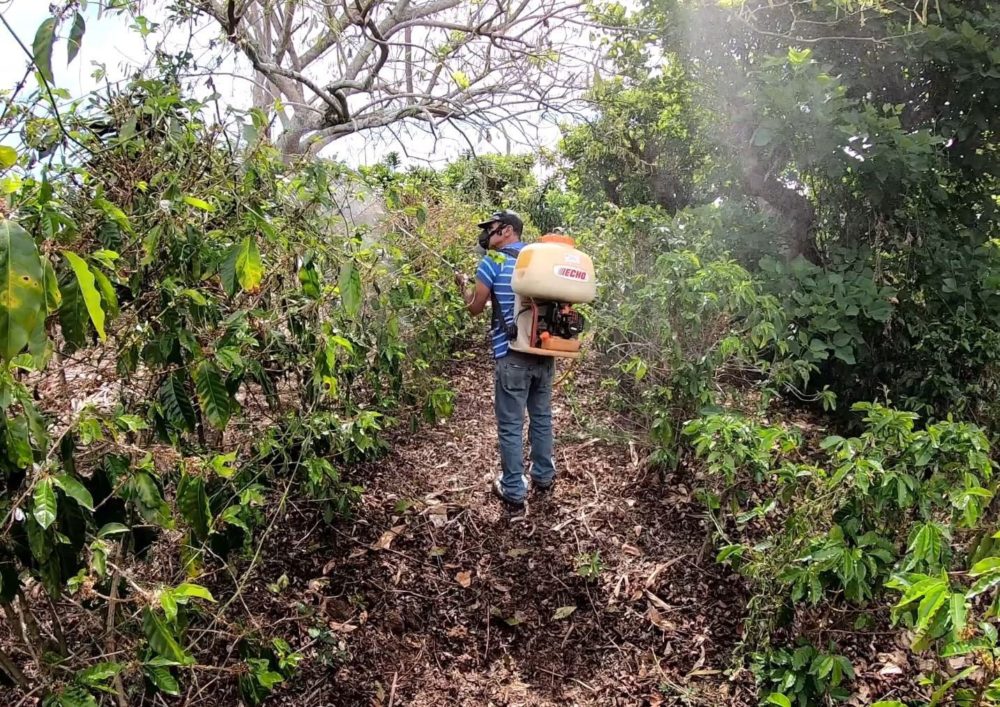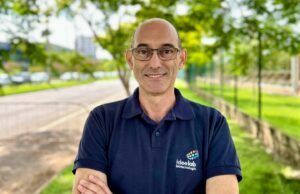Alternative ‘biologic’ crop inputs are a new class of products that offer farmers ways to control disease, pests, and drought without relying on agrochemicals, which remain the most widely used solution globally.
“Agrochemicals can be extremely harmful to workers and the environment, and the microbial pests they seek to manage adapt to them,” Néstor Zúñiga Arias, managing director of ClearLeaf, told AFN.
“This frequently results in increased and abusive use of agrochemicals and microbial resistance which, in turn, severely harms the environment and workers, impairs plant and farm function, and potentially puts consumers at risk.”
Part of the reason ClearLeaf was launched in Costa Rica in 2017 was to improve worker safety conditions on the farm through the creation of alternative crop inputs.
“Farmers and ag workers die every day from acute and chronic pesticide exposure. Ecosystems are severely damaged with chemical runoff, and there is constant news of high levels of toxic and carcinogenic substances in our food,” Arias said.
“If we could change one ag policy, it would be to ban — for real, not just on paper — the most toxic substances used in most agricultural practices today. As an intermediate step, we believe consumers have a right to know how crops are grown, as well as the details of the entire value chain.”
ClearLeaf’s flagship product, GotaBlanca, aims to control fungal and bacterial pests. It recently received organic certification in the EU, Japan, and Costa Rica.
The startup offers products for coffee, banana, sugar cane, and flower production, and it’s working on pilots for pineapple, cannabis, citrus, grapes, and a variety of vegetables. It also offers products to help farmers with in vitro propagation, which is one method used to create new plants.
Read on to learn more about ClearLeaf and its startup journey from Arias.
What is your technology and what is it trying to solve?
GotaBlanca products and formulations are contact-action liquid emulsions that adhere to vulnerable living and post-harvest plant tissue. GotaBlanca protects the plant, promotes healing of damaged tissue, and provides an optimum medium for GotaBlanca’s antimicrobial action, which is highly toxic towards fungi and bacteria and is non-toxic towards humans, plants, insects, and wildlife. This method of action prevents the occurrence of microbial resistance, allowing for safe, long-term use.
It’s harmless to the farm and surrounding ecosystem, innocuous to humans, requires only minimum protective equipment, and generates no hazardous waste. [It] can be applied at any time in the growing cycle [and] also be used for the protection of post-harvest produce, to maintain freshness between the farm and the end consumer.
Who is your target customer?
We have two types of clients. We sell our products directly to larger clients, such as multinationals like Dole and Del Monte where we act as a B2C company. For B2B, we are developing channels for both organic and conventional agriculture, as these markets are usually quite distinct.
Is it difficult to get farmers to adopt your alternative crop input?
Our technology is very versatile and there is no learning curve associated with its use, as it is applied using common agrochemical application methods.
Our biggest hurdle is finding early adopters that are willing to test our products because even though they offer as good, or better, results than the existing competition, most farmers and distributors are used to existing molecules. We spend most of our efforts finding the right strategic partners for this purpose. We have made significant progress with several early adopters who have been delighted with GotaBlanca and were able to overcome initial resistance. However, we still have work to do in order to find more adopters and see a more broad acceptance of our products.
What are your biggest challenges?
Agricultural chemical markets are developed by securing product registrations, which is our biggest challenge. Agricultural chemical regulation is antiquated, slow, and treats substances known to be safe the same way it treats the deadliest poisons known to mankind. We are able to validate product effectiveness to the satisfaction of key local market leaders, and generating demand from end clients and distribution partners – but then we must work through lengthy regulatory processes.
Large multinationals treat registration in 150 countries as an up-front fixed cost, regardless of specific demand. Our strategy is more cost-effective. ClearLeaf engages the key clients first and works with them to bring in distributors and help secure product registrations. We are strategically planning and executing that strategy across numerous markets – imminently in Colombia and Ecuador, where incorporation processes and registrations have started during Q4 2020.
We are also actively looking for strategic partners in Europe and Asia. We have ongoing conversations with significant groups in Denmark, the Netherlands, Singapore, and China, with the sole purpose of getting started with incorporations and registrations in those markets as soon as possible.
If you could change one ag policy, law, or regulation, what would it be and why?
Full disclosure of what chemicals are used on food products would go a long way to shifting markets. We know too many agrochemicals in use are destroying our planet, our environment, our farmers, and our future generations. In the past, it was acceptable to say that there were no real options to make these necessary changes; but innovation is the key to solving these problems, and the technology is already here.
What has your fundraising experience been like to date?
It has not been easy. Costa Rica, where we are based, works great as a launching platform for sustainable projects and we make it work as a testing lab for products of global reach. It also offers access to several large players in the world of crops where our technology can be very effective, such as coffee, banana, and pineapple.
But when it comes to access to capital for [intellectual property-based] companies such as ClearLeaf it is very challenging. Fortunately, we have been able to generate an ample international buzz that allowed us to secure most of our money from investors outside of Costa Rica.
ClearLeaf recently secured a $500,000 seed round. It was a combination of friends, family, and angel investors. A portion of it was considered ‘smart money’ in the sense that the investors contributed more than just capital. We were able to recruit investors that are currently supporting our efforts in business development, sales, marketing, and piloting for all our products. We plan to launch a Series A round in 2021 to advance and accelerate our core activities.
What has been the most surprising aspect of your startup journey so far?
It’s that there appears to be a genuine interest in the agricultural sector to change the way pest control is done. Adoption of new technology has passed from fad to a genuine need and powerful trend. We see it every day from local producers all the way up to big multinationals. We also see it with the biggest agrochemical producers in the world making moves into less toxic products for their portfolios, and we see the distribution channels aggressively looking for alternatives to present to their long-lasting clients that are more friendly to the environment.
End consumers and their critical intermediaries, such as retailers, play a major role as well, seeking safer products and more sustainable consumption. So, as challenging as this journey has proven to be, we are excited about the future of our company and our role in the global sustainable marketplace.
Any advice for other startups out there?
At ClearLeaf, we would always advise other startups to believe in what they are doing, to be patient, and trust the process as it is not always easy. We also encourage new startups to concentrate on defining, and refining, their value proposition. You must make sure you truly understood, that the value for clients is really there.
We advise new founders to attract the best team possible and not to fall in love with the solution they are providing, but rather with the ways of solving the problem they are addressing. We always recommend staying flexible, so that with the help and advice of other experts, the new venture can find the best way into the market.





